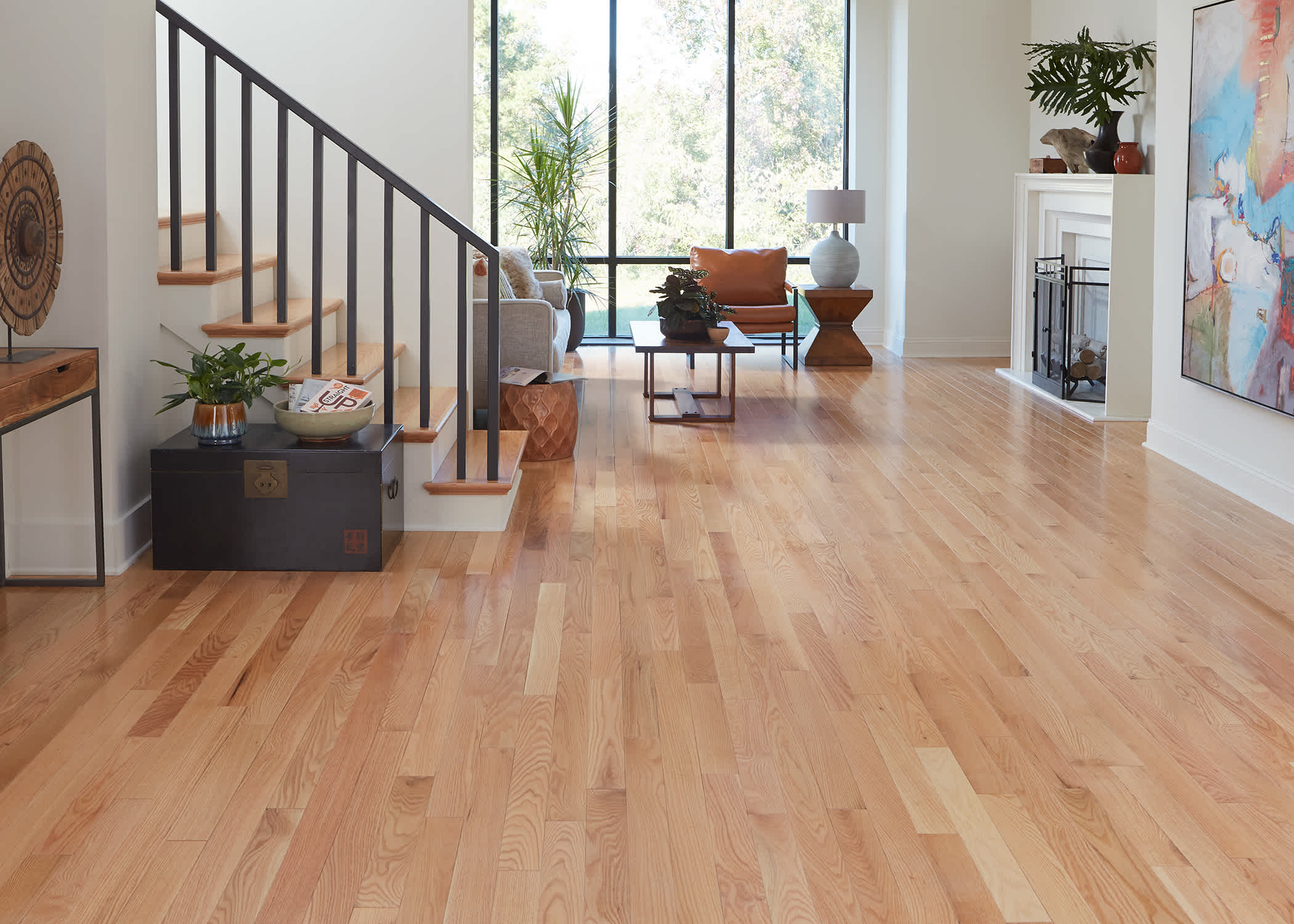How Much Use Will Your Basement Floor Get?
Consider how much traffic and usage your basement floor will receive when choosing the right material for your space. If your basement doubles as a laundry room or home gym, you'll need a durable flooring that can withstand heavy equipment and foot traffic. Sturdy vinyl planks are a great option for this scenario, while elegant, engineered hardwood may be ideal for a guest room that sees lighter use.
For areas prone to water exposure, like laundry rooms and bathrooms, it's important to choose waterproof flooring that can protect against potential water damage and allow for wet mopping. LL Flooring offers a range of waterproof laminate and vinyl flooring options that can stand up to moisture.
For households with kids and pets, consider a scuff-resistant floor like vinyl or laminate that can withstand scratches and wear and tear. And if you're planning a yoga studio or music room, cork flooring can provide sound insulation and comfort underfoot. Plus, cork is one of the most sustainable flooring options available, as it's harvested from living trees that go on to produce new bark. LL Flooring offers both classic cork tiles and plank-length cork for a contemporary look. Some brands of cork floors are even waterproof, making them a great option for high-moisture areas.
Is Your Sub-floor Ready?
When it comes to floor prep, the three words to remember are “clean,” “dry,” and “flat”. Getting your subfloor ready for installation is an essential process if you want to ensure moisture protection, prevent installation failures, and mitigate the possibility of sound issues developing with your new floor.
DIY or Hire a Contractor?
When it comes to installing basement flooring, some types are easier to install than others. While many flooring types can be installed by experienced DIYers, we recommend hiring a professional installer to ensure a proper and long-lasting installation. For those who want to tackle the installation themselves, peel-and-stick vinyl, click-together engineered hardwood, vinyl, or laminate floors are all DIY-friendly options.
If you're considering traditional hardwood floors, we suggest hiring an independent contractor to install them. Whatever flooring option you choose, LL Flooring offers an array of high-quality choices to suit your needs.
Ready to get started? Visit your nearest LL Flooring store or browse our selection of flooring options online. Our Picture It Floor Visualizer allows you to upload photos of your basement and preview different flooring options before making a decision. And with LL Flooring, you can count on us to guide you every step of the way. We provide basement flooring options as well as accessories like quarter rounds and baseboards, to help you achieve the perfect finished look.

